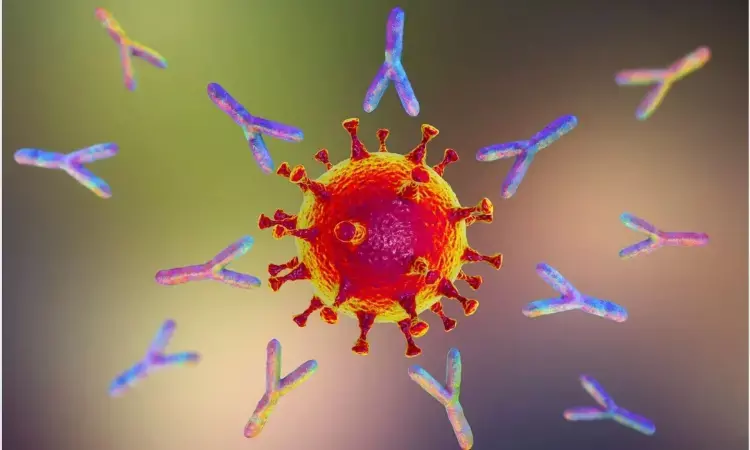- Home
- Medical news & Guidelines
- Anesthesiology
- Cardiology and CTVS
- Critical Care
- Dentistry
- Dermatology
- Diabetes and Endocrinology
- ENT
- Gastroenterology
- Medicine
- Nephrology
- Neurology
- Obstretics-Gynaecology
- Oncology
- Ophthalmology
- Orthopaedics
- Pediatrics-Neonatology
- Psychiatry
- Pulmonology
- Radiology
- Surgery
- Urology
- Laboratory Medicine
- Diet
- Nursing
- Paramedical
- Physiotherapy
- Health news
- Fact Check
- Bone Health Fact Check
- Brain Health Fact Check
- Cancer Related Fact Check
- Child Care Fact Check
- Dental and oral health fact check
- Diabetes and metabolic health fact check
- Diet and Nutrition Fact Check
- Eye and ENT Care Fact Check
- Fitness fact check
- Gut health fact check
- Heart health fact check
- Kidney health fact check
- Medical education fact check
- Men's health fact check
- Respiratory fact check
- Skin and hair care fact check
- Vaccine and Immunization fact check
- Women's health fact check
- AYUSH
- State News
- Andaman and Nicobar Islands
- Andhra Pradesh
- Arunachal Pradesh
- Assam
- Bihar
- Chandigarh
- Chattisgarh
- Dadra and Nagar Haveli
- Daman and Diu
- Delhi
- Goa
- Gujarat
- Haryana
- Himachal Pradesh
- Jammu & Kashmir
- Jharkhand
- Karnataka
- Kerala
- Ladakh
- Lakshadweep
- Madhya Pradesh
- Maharashtra
- Manipur
- Meghalaya
- Mizoram
- Nagaland
- Odisha
- Puducherry
- Punjab
- Rajasthan
- Sikkim
- Tamil Nadu
- Telangana
- Tripura
- Uttar Pradesh
- Uttrakhand
- West Bengal
- Medical Education
- Industry
Scent-trained dogs may help screen COVID-19 rapidly in noninvasive manner

California: A new study revealed that using Scent-trained dogs for screening of COVID-19 patients was efficient, noninvasive, and rapid. Dogs were used to perform large-scale volatile organic compound screening thus reducing the antigen tests by nearly 85%. The study results were published in the journal JAMA Pediatrics.
Dogs have a great ability to detect volatile organic compounds (VOCs). Research has shown that when COVID-19-infected specimens collected from SARS-CoV-2–infected and uninfected individuals were used, dogs could detect the infected specimens through the VOCs. As COVID-19 antigen testing program requires personnel, testing resources, and sample collection and generates medical waste The California Department of Public Health partnered with Early Alert Canines to use Scent-trained dogs as a strategy for rapid, noninvasive, low-cost, and environmentally responsible COVID-19 screening.
To complement the school antigen testing program with the dog screening program, 2 medical alert dogs were trained to identify volatile organic compounds (VOCs) emitted by people with COVID-19 for 2 months. After achieving nearly 95% sensitivity and specificity, the dogs were piloted in the field. With the approval from the California State Committee as public health surveillance for the protection of Human Subjects and ensuring the ethical oversight of the dogs from the Early Alert Canine that is accredited by Assistance Dogs International the study was carried out.
A subset of volunteer schools where antigen testing was scheduled was selected. Keeping the participants 6 ft apart, the dogs, led by handlers, sniffed the participants’ ankles and feet. Handlers were alerted by the dogs by sitting near the participant with potential COVID-19 infection. Participants then underwent BinaxNOW (Abbott) antigen testing. A digital platform was used to record the dog and antigen results.
If a dog signaled positive and antigen testing results were negative, the signal was considered falsely positive; similarly, if a dog did not signal and antigen testing results were positive, the signal was considered falsely negative.
Key findings:
- Nearly 50 visits were conducted at 27 schools from April 1 to May 25, 2022.
- There were 1558 participants with 89% students. Nearly 68% were screened at least twice.
- About 3897 paired antigen-dog screenings were completed.
- The dogs signaled 85 infections accurately and ruled out 3411 infections with an overall accuracy of 90%.
- They inaccurately signaled infection in 383 instances and missed 18 infections, resulting in a sensitivity of 83% and specificity of 90%.
Thus, the authors suggested that by making small alterations in the procedure, dogs can be used for efficient and noninvasive COVID-19 screening and also for other pathogens.
Further reading: Glaser CA, Le Marchand CE, Rizzo K, et al. Lessons Learned From a COVID-19 Dog Screening Pilot in California K-12 Schools. JAMA Pediatr. Published online April 24, 2023. doi: 10.1001/jamapediatrics.2023.0489
BDS, MDS
Dr.Niharika Harsha B (BDS,MDS) completed her BDS from Govt Dental College, Hyderabad and MDS from Dr.NTR University of health sciences(Now Kaloji Rao University). She has 4 years of private dental practice and worked for 2 years as Consultant Oral Radiologist at a Dental Imaging Centre in Hyderabad. She worked as Research Assistant and scientific writer in the development of Oral Anti cancer screening device with her seniors. She has a deep intriguing wish in writing highly engaging, captivating and informative medical content for a wider audience. She can be contacted at editorial@medicaldialogues.in.
Dr Kamal Kant Kohli-MBBS, DTCD- a chest specialist with more than 30 years of practice and a flair for writing clinical articles, Dr Kamal Kant Kohli joined Medical Dialogues as a Chief Editor of Medical News. Besides writing articles, as an editor, he proofreads and verifies all the medical content published on Medical Dialogues including those coming from journals, studies,medical conferences,guidelines etc. Email: drkohli@medicaldialogues.in. Contact no. 011-43720751




